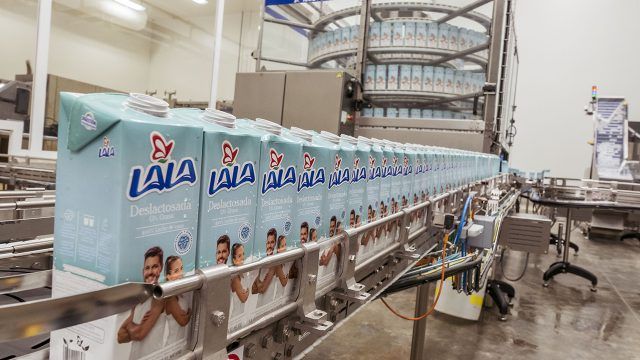Grupo Lala reported that at the end of 2022 it had eight wastewater treatment systems serving nine factories.
These systems provide secondary and, in some cases, tertiary treatment of discharged wastewater.
The company plans to provide similar treatment for the rest of its manufacturing units.
Today, all effluents from Grupo Lala’s processing plants receive treatment prior to discharge based on physicochemical and biological systems, complemented by tertiary systems in some of them.
This has also allowed treated water to be used internally and externally, achieving a reuse rate of 13.36% of treated water.
In addition, in relation to its collaboration program with government agencies and civil societies for the reuse of treated water for irrigation of green areas, the company used 7% of treated water in production plants for this purpose in 2022.
Grupo Lala
In all Grupo Lala subsidiaries that operate, there is an institutional environmental training program in the induction process, covering topics such as special and hazardous waste management, rational use of water and energy.
The company has invested in equipment to treat sludge from the operations of the Wastewater Treatment Plants, to reduce its generation and final disposal and in turn maximize its recycling as soil restorers and to generate compost.
In line with our sustainability strategy, as part of the activities related to water management, 28.8 million pesos were invested in the expansion and installation of the water treatment plants located in the La Laguna and Irapuato production plants.
On the other hand, Grupo Lala implemented projects for the adaptation and improvement of water consumption, acquisition and installation of self-monitoring equipment for treatment plants, and improvements in the infrastructure of plants such as Sao Gonzalo and Sao Paulo. In addition, it migrated to the clean energy market at the Lima Duarte and Santa Rita plants.
In general, each of its manufacturing plants is required to obtain an environmental operating license from the municipal authorities, as well as other state water, waste and atmospheric licenses and federal hazardous waste and water exploitation licenses for the correct and full functioning of its operations.
Manufacturing plants pay fees for water consumption and wastewater discharge into the sewage system, as well as fees for obtaining licenses and/or environmental certificates for waste, atmosphere, and perimeter noise, for their proper functioning and operation.
In particular, international environmental laws, regulations, norms, and standards require industrial activities to submit periodic reports on their different impacts on water, air, soil, subsoil, energy, and climate change.

